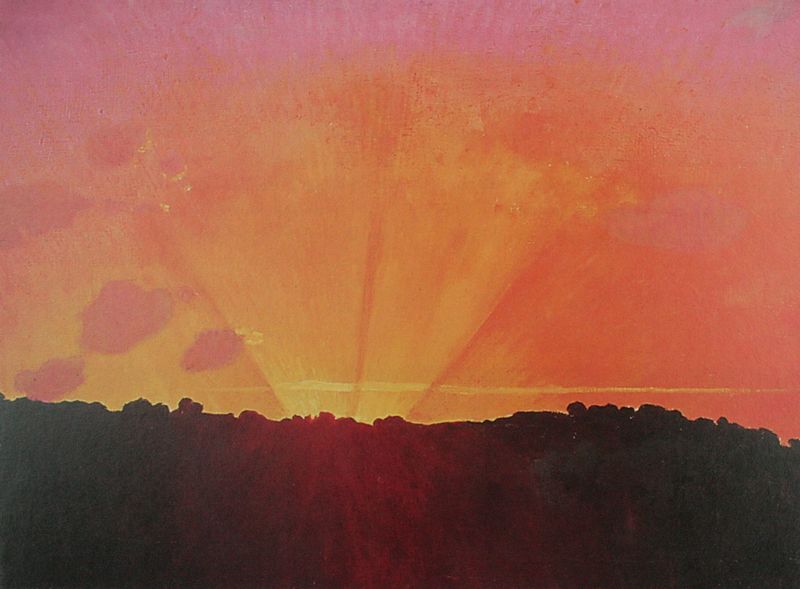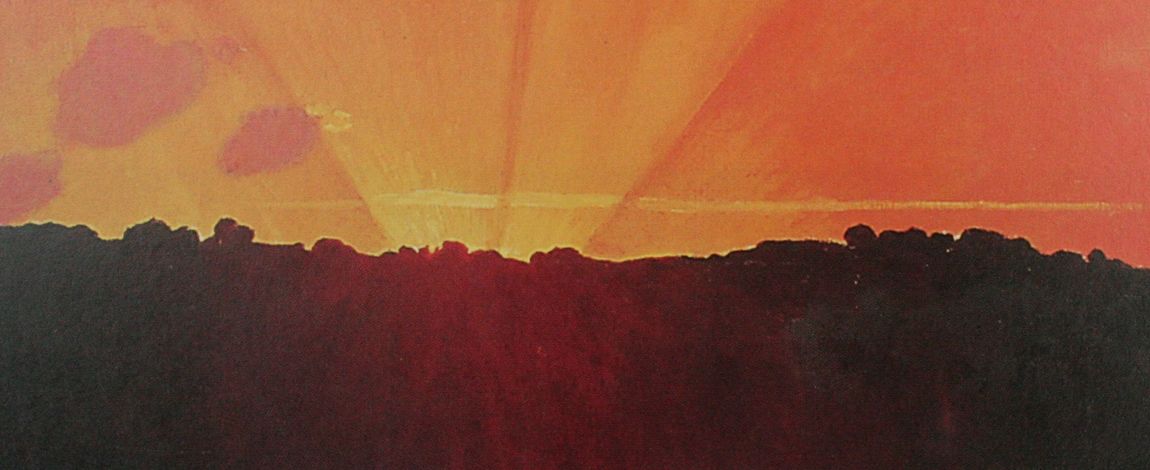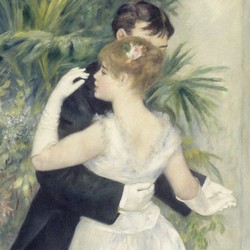
Sometimes, being in the right place at the right time is a matter of luck. Other times, it’s the result of careful planning.
When it comes to songs, they obviously can’t choose for themselves, and they depend on the judgement of performers, composers, or editors. And sometimes, poor things, they suffer the consequences of an unfortunate choice. Because, let’s be clear: it’s not irrelevant whether a song appears at one moment or another in a recital.
An example I often use to illustrate this idea is a beautiful song by Korngold, Unvergänglichkeit. It belongs to the cycle of the same name, and we hear it twice: once to open it and again to close it. And although the score is the same on both occasions, we don’t perceive it in the same way: the context has changed, and that makes us hear two different songs. Unvergänglichkeit is a very lucky song, and yet another example of the composer’s refinement.
Sometimes, it might be better for a song to stay home that day, or to appear as a special guest in the encores. In this respect, the unluckiest song in the repertoire is surely Die Taubenpost. Such a beautiful song, rejected by many because of the questionable decision of the publisher Tobias Haslinger to place it at the end of Schubert’s Schwanengesang. What song lover hasn’t found themselves debating whether or not it’s an anticlimax to hear it after Der Doppelgänger? The Neue Schubert-Ausgabe corrects the anomaly and gives Die Taubenpost its own catalogue number, but the damage is already done.
When we talk about the songs that make up a programme, there are usually some unwritten rules. For example, it’s commonly accepted that a work like Strauss’s Vier letzte Lieder should close the programme, because it’s so vast and carries so much weight that it would be hard for listeners to hear anything else afterwards (and surely the performers would have something to say about that, too). Even the encores, which come after the break created by the applause, should be chosen with great care.
As for the songs that open a concert, it’s always tricky because the audience isn’t yet fully focused, but I think the most disadvantaged are those that open a programme in which, sooner rather than later, operatic arias will be sung. Yes, those odd programmes which you know I’m not very fond of. I imagine the songs, ready to step onto the stage, trembling, encouraging one another, knowing that they will soon be eclipsed by a sumptuous operatic aria, certain to triumph. And the next day, some critic will confirm their fears: “Singer X warmed up her voice with a few Schubert lieder before leaving us spellbound with Les oiseaux dans la charmille.” For example. But let’s set aside these cases that wound my lieder-loving sensibilities, and talk about well-made, or very well-made, programmes, and about songs that could hardly have imagined they would become unforgettable thanks to the skill of the performers, who placed them in the right place at the right time.
And so we come to this week’s song, Wiedersehen, which Franz Schubert composed in September 1825. In many ways, it’s a very representative lied of the composer. At least, of those lieder we can include in the category of miniatures: so discreet that you have to look closely to perceive the beauty of their details. Some authors mention it alongside Lied des Florio, written some days later, because they share a relatively elaborate vocal line with a simple accompaniment. And a charm, in my opinion, that’s undeniable.
The poem of Wiedersehen, by August Friedrich Schlegel, speaks of the joyful anticipation before a romantic meeting. Three years earlier, Schubert had set to music a poem –this one by Goethe– on the same theme, Willkommen und Abschied, and on that occasion he sent the lover, the singer, and the pianist galloping so as not to lose a single second in reaching the rendezvous. In Wiedersehen, by contrast, everything is calmer, as if the first line of the poem, “Der Frühlingssonne holdes Lächeln” [The spring sun's lovely smile], set the pace and atmosphere. The song breathes innocence and joy, and we feel the happiness in a melody as charming as the sun’s smile, and in details such as the leap of the voice on “Flügel”, the ornament on “Liebe”, or the (not identical, listen closely) repetition of the last two lines of the stanza.
Schubert set only the first stanza of Schlegel’s poem to music and indicated that it could be repeated; the first edition of the score includes the first two stanzas, and this is the version duos usually perform: the music is too beautiful to hear only once, and the repetition is enough to leave us still wanting more.
As I was saying, Wiedersehen is a song that can go somewhat unnoticed among others that are more striking. And sometimes, magic happens. Samuel Hasselhorn and Ammiel Bushakevitz decided to close their programme Licht und Schatten [Light and Shadows] with this song; after hearing others as powerful as Die Allmacht or as poignant as Die junge Nonne or Totengräbers Heimweh, comes this little gem. I’ve been lucky enough to hear the programme twice, and if the first time this perfectly rounded ending caught my attention, the second time I confirmed that ending the recital with this song was perfec: the exact point of light, with a spring sun that doesn’t yet burn and that we all long for after winter.
I invite you to listen to Wiedersehen performed, fittingly, by Samuel Hasselhorn and Ammiel Bushakevitz, the ones responsible for ensuring I will always remember it.
Der Frühlingssonne holdes Lächeln
Ist meiner Hoffnung Morgenroth;
Mir flüstert in des Westes Fächeln
Der Freude leises Aufgebot.
Ich komm', und über Thal und Hügel,
O süße Wonnegeberin,
Schwebt, auf des Liedes raschem Flügel,
Der Gruß der Liebe zu dir hin.
Der Gruß der Liebe von dem Treuen,
Der ohne Gegenliebe schwur,
Dir ewig Huldigung zu weihen
Wie der allwaltenden Natur;
Der stets, wie nach dem Angelsterne
Der Schiffer, einsam blickt und lauscht,
Ob nicht zu ihm in Nacht und Ferne
Des Sternes Klang hernieder rauscht.
The spring sun's lovely smile
is Dawn to my hopes;
in the westerly breezes I hear whispering
the discreet banns of Joy.
I am coming - and across valley and hill,
O sweet bestower of bliss,
upon swift wings of song, flies
to you love's greeting.
It is the greeting of love from the faithful,
who, without the promise of love in return,
is as dedicated to your homage
as to all-powerful Nature;
[and] who incessantly -- just as to the pole star
the sailor -- looks and listens in loneliness,
[wondering] if in the night and distance
the sound of the star might [somehow] ring down to him.
(translation by Emily Ezust)

















Comments powered by CComment